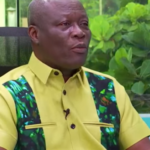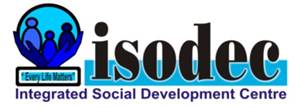There seem to be no end in sight for the closure of the development gap between the north and the south. A recent study suggests that the doctor-to- patient ratio remains unreasonably high in the three regions of the north as compared to the regions in the southern part of the country.
Available statistics show that in 2014 and 2015, the number of doctors in Greater Accra was over 1,000 compared to less than 50 in the Upper East as well as Upper West regions. Even though Greater Accra has a population of over 4 million, each doctor took care of fewer patients as compared to doctors in the three regions in the north.
The doctor-to- patient ratio was 1:2, 774 in 2014 and 1: 3,186 in 2015 in Greater Accra, whereas in Northern, Upper East and Upper West regions, doctor –to – patient ratio was 1: 23,759, 1: 32,285 and 1:36,048 respectively in 2015. Although the ratio reduced to 1:18,412, 1: 24,253 and 1: 30,601 respectively in 2015, these ratios remain unacceptably high.
The situation according to some health expert, is problematic as it falls below the 1 doctor to 5000 patient ratio per the recommendations of the Commonwealth and the 1 doctor to 1,320 patients per the recommendations of the World Health Organization (WHO)
These staggering disparitities, according to the study was due to unequal distribution and refusal of some health workers to accept postings to some parts of the country.
The Report, ‘Giving Patients Value for Money; Are Clients Satisfied with the quality of Health service’s was undertaken by SEND-Ghana under its Making the budget work for Ghana Project. It was launched in Accra last Tuesday.
The study was carried out in 30 districts across four regions including Greater Accra, Northern, Upper West and upper East Region. The study interviewed and administered questions to 2026 respondents, having women constituting more than 56 percent.
The report indicates that out of government of Ghana’s total actual expenditure on health in 2014 and 2015, 94 percent and 91 percent respectively were spent on health workers’ compensation.
Also, in 2017, 50 percent of the estimated allocation to the health sector will be expended on compensation.
In addition to compensation, an average of 3 percent of the health sector budget was allocated for pre, post and specialized service training, comprising of Ghc132.4 million, Ghc40.9 million and Ghc150.9 million in 2014, 2015 and 2016 respectively.
The report said “with such high expenditure on human resources, citizens expect to have quality health service delivery from friendly and welcoming health workers, resulting in patients’ satisfaction with the services rendered.”
It added that over the years, inadequate health workers in the country have been a challenge for the sector. Few professionals graduate each year, especially doctors, to work in health facilities. As a result, doctor –to –patient ratio in 2012 was 1:1,362 during the same period.
However, significant strides were made in addressing these challenges. The national doctors-to –patient ratio declined to 1:9,043 and 1:8,934 in 2014 and 2015 respectively.
On the hand, nurse-to- patient ratio also reduced to 1:959 and 1:739 in 2014 and 2015 respectively, surpassing the WHO’s standard of 1:1000.
In the area of nursing, the report showed that not all the districts surveyed received the number of health workers they had requested for. It said new workers received by the surveyed districts in the Upper East Region in 2014 and Upper West Region in 2015 were less of the number of health workers requested by the health facilities by 47 percent and 10 percent respectively. Meanwhile, for that same period, health facilities in the Greater Accra Region received 186 percent more than they requested.
Responding to some of the issues in the report, Dr Kwabena Twum- Nuamah, Chairman of the Parliamentary Committee on Health submitted that it was time the country looked at ways to incentivize doctors who are posted to deprived areas.
DrTwum-Nuamah also emphasised on the need to create the right environments in terms of infrastructure to address the issue of patients’ privacy at health centres.
“As a Country we must create attractive forces to attract health workers to accept postings to deprived areas. We must also be very frank as a country to interrogate the system and put things right. It is time we stop beating around the bush and fix the problems confronting our health workers,” he maintained.
On his part, Chief of Party, P4H Project, SEND Ghana Consortium, Mr Siapha Kamara, said it was important for the tax payer to be empowered to hold policy makers accountable and urged the media to continue to set the agenda for policy makers to act.
He also urged the GHS to adhere strictly to its code of ethics and conducts and sanction those who would not work within it.
By Mohammed Suleman














